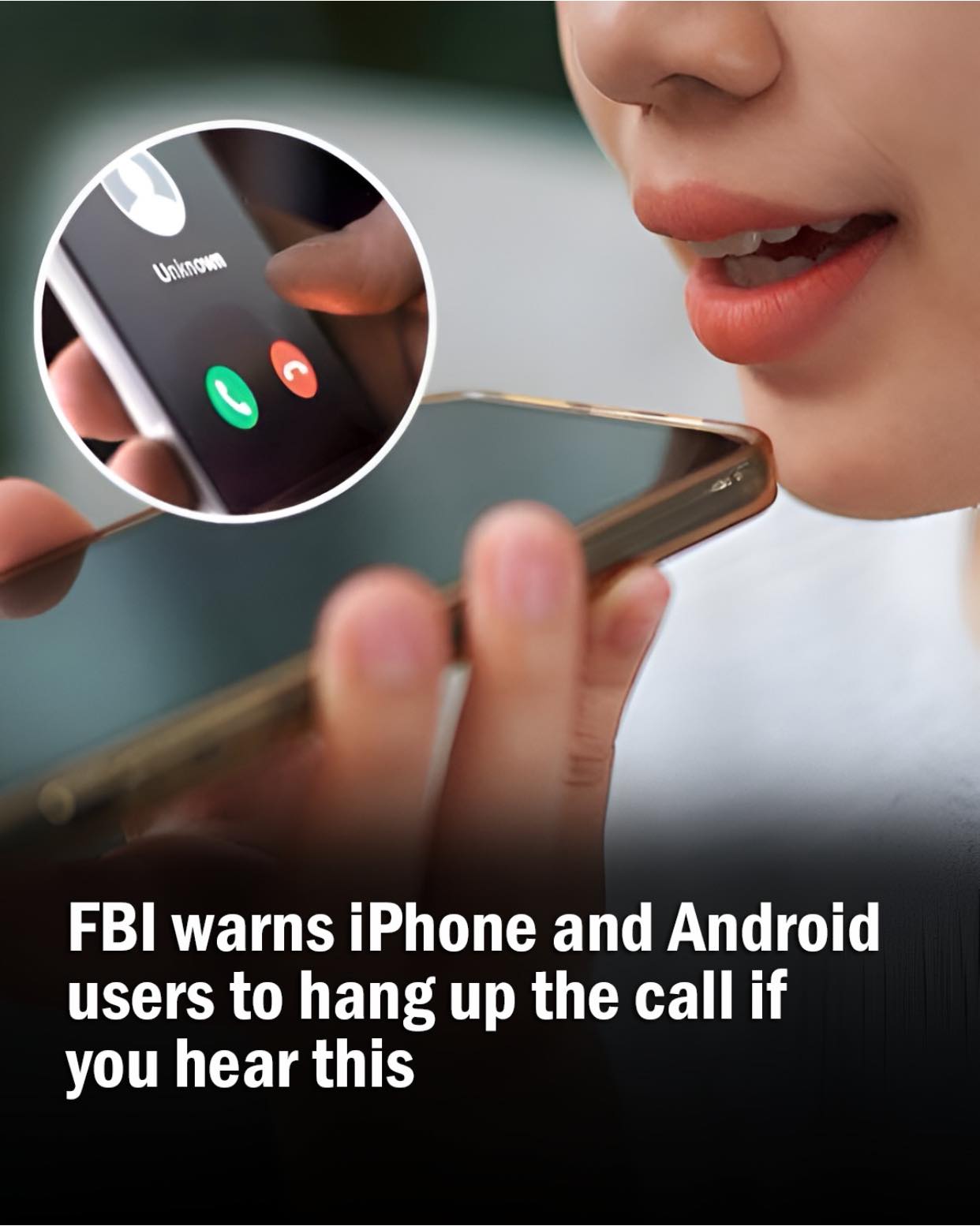The FBI has issued an urgent warning to all smartphone users—whether you use an iPhone or Android—to stay alert and take action if you receive a suspicious call. These phone scams are becoming more sophisticated and more dangerous, targeting people with fake identities, urgent threats, and tactics designed to make even the most careful individuals panic.

According to the FBI, if you get a call that seems odd, includes high-pressure demands, or strange background sounds, your best option is to hang up right away. These calls are typically scams, created to trick you into revealing sensitive personal information or handing over money, and the criminals behind them are getting better at what they do. One of the main reasons these scams are so convincing is because of something called caller ID spoofing.
This allows scammers to manipulate the number that appears on your screen, making it seem like the call is coming from someone legitimate—like your local police department, your bank, or even a federal agency. In some cases, scammers are even using real names of law enforcement officers or agency representatives to increase credibility and make their scam even more believable. Picture this: your phone rings and it says the call is from your local police department. You answer and the voice on the other end claims you’ve missed jury duty or that there’s a warrant out for your arrest. Or maybe they tell you your bank account has been compromised and you need to take immediate action to protect your funds.
The caller will then pressure you to send money right away—often through wire transfers, gift cards, or cryptocurrency. They create a sense of urgency that is meant to overwhelm your logical thinking and make you act before you have time to question whether the situation is real. The FBI has outlined several signs that should raise red flags. If someone calls and demands immediate payment using nontraditional methods like gift cards or crypto, it’s a scam. Legitimate agencies and organizations do not operate this way. They do not demand payment over the phone, and they certainly do not ask for personal details without prior verification or written communication. Scammers often claim legal trouble—missed court dates, unpaid fees, or fake warrants—in an attempt to scare people into acting fast. Even if the caller ID looks official, the FBI advises people to hang up.
If there really is a problem, the legitimate organization will contact you through official, traceable means like a mailed letter or a secure website. Another common trick is telling you to press a button on your phone for more information or to connect to a representative. Don’t do it. Pressing any button tells the scammer that your number is active, which may lead to an increase in scam calls targeting you in the future. If you get one of these suspicious calls, don’t engage—just hang up.
Then take the time to verify the claims by calling the organization directly using a number from their official website. Never rely on the number that called you. Additionally, the FBI recommends reporting the incident to your local law enforcement and submitting a report through the FBI’s Internet Crime Complaint Center (IC3). These reports help investigators track patterns and warn others about ongoing scams. But phone calls aren’t the only concern—the FBI is also warning about scam text messages. These texts often claim you owe a small fee, like for an unpaid toll, and include a link to resolve the issue. But clicking that link can instantly expose your personal data or financial information. As a rule, never click on suspicious links or respond to texts requesting private information. If something seems off, trust your instincts and do some digging before taking action. These scams can have devastating consequences, but by staying informed and being cautious, you can avoid becoming a victim. The FBI stresses that no reputable agency or business will demand immediate payment or sensitive information via unexpected calls or text messages. Staying alert, refusing to engage, reporting suspicious activity, and educating those around you is the best way to stop these scammers from succeeding.





